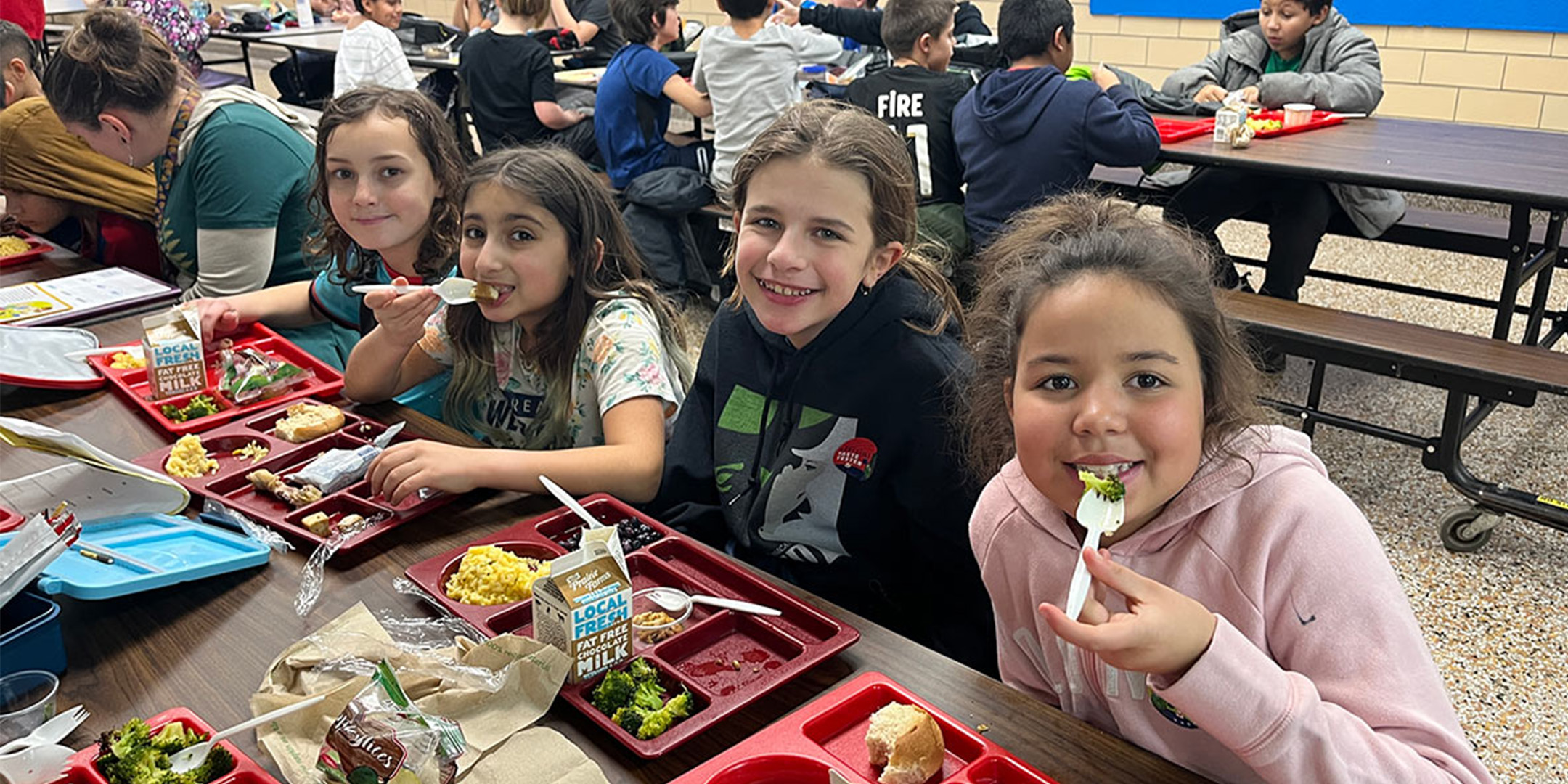
Food insecurity is an ongoing issue across the nation, impacting nearly 12 million children. Approximately 200,000 of those children are living in poverty in Wisconsin. Through an essential partnership with the Madison Metropolitan School District’s Research, Assessment, and Improvement Department, students at the UW School of Human Ecology are conducting research and connecting the importance of school lunch programs to children’s success in the classroom. Jennifer Gaddis, associate professor of civil society and community studies, has spent more than a decade researching lunch programs. One aspect of her work is exploring ways to make meals more enjoyable. This would increase the likelihood of broader adoption of the meal plan among families who can afford to pay, bringing more money into the program overall.
“To be healthy, you have to have all the nutrients that you need, and a lot of kids — especially Black and brown kids — don’t get this nutrition,” says Carla Rattunde PhDx’26, a civil society and community research doctoral student. “It affects their education, which determines what jobs you can get. That affects how much money you have, which is related to how healthy you can be.”
Empathy and philanthropy play vital roles in the research and action needed to support these K–12 students. Through the generosity of donors like Jane ’72 and Patrick Thiele ’72, MS’75, faculty members at the School of Human Ecology can help confront food insecurity issues being faced by local families and communities.
